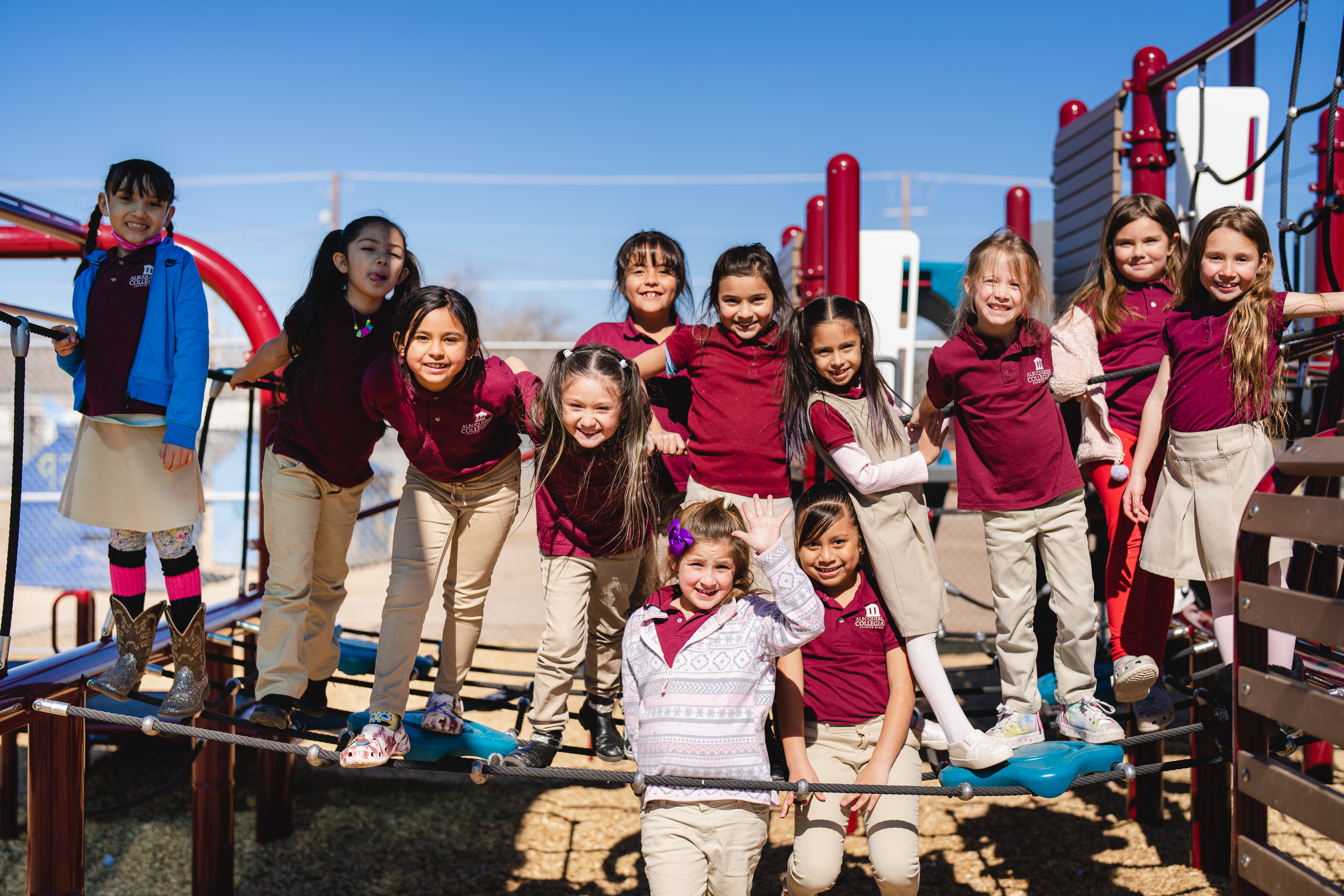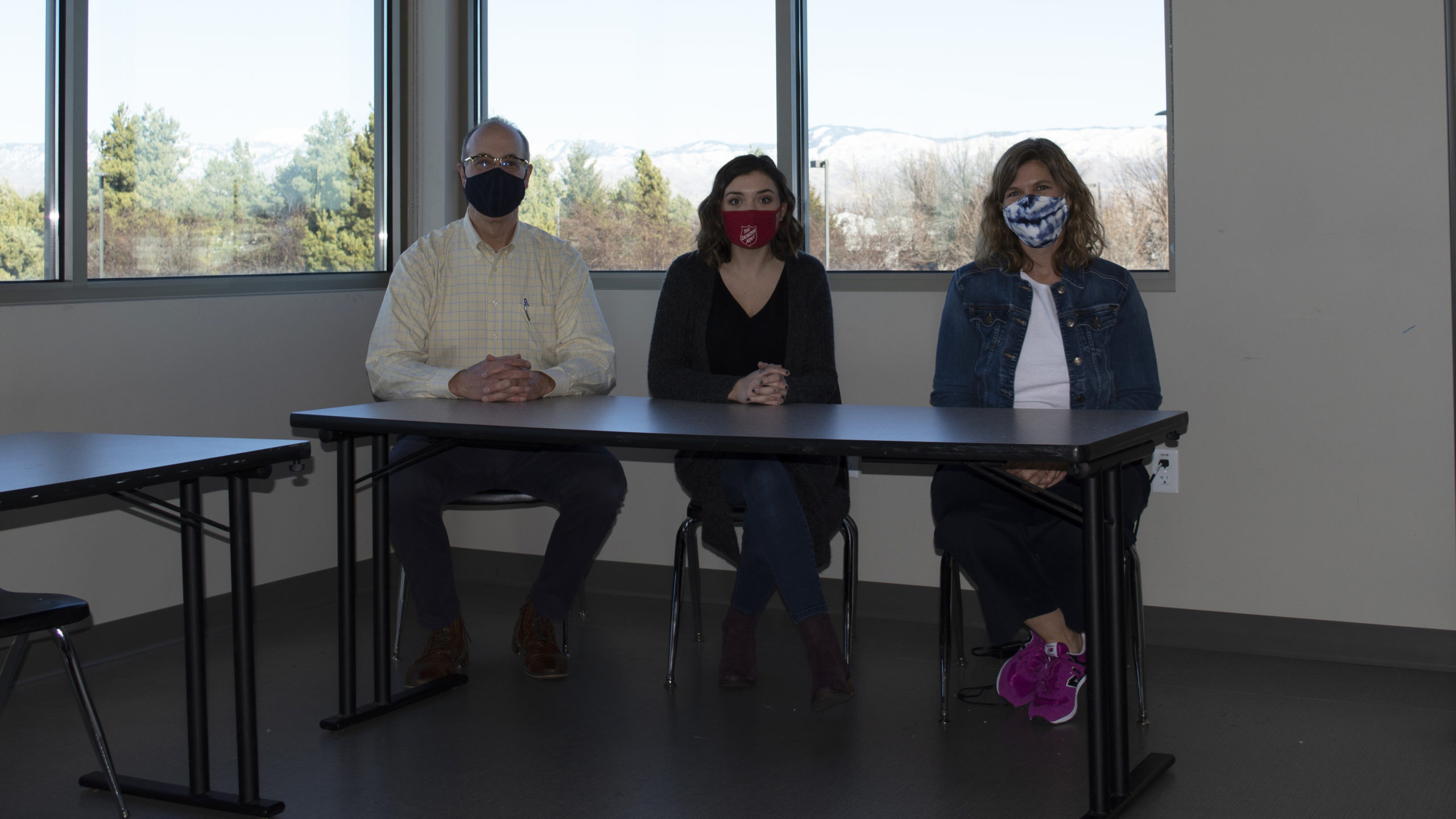
Cardinal Academy is Tailored to Educate Parenting Teens
Powerful partnership with The Salvation Army builds on rich history
Cardinal Academy, a new public charter high school for pregnant and parenting students opening this fall, offers a powerful example of how charter schools can fill voids school districts are unable or unwilling to fill themselves.
In the case of Cardinal Academy, the void was created when the Boise School District decided to close a 55-year-old school, originally opened as a Salvation Army temporary home for teen mothers in the 1920s. BSD’s closure of the Booth-Marian Pritchett school last spring left the area without a viable option for a population with unique and urgent needs.
“We have a 100-year legacy of doing this work in the Treasure Valley, and it is great to be able to continue providing an academic program for pregnant and parenting teens through Cardinal Academy,” said Major Kim Stamaugh, a top Salvation Army official in the Boise area.
Cardinal Academy, part of Bluum’s partner schools, will be located in the Salvation Army’s new Booth Campus in West Boise. When it launches this summer, it promises to offer its students a significantly broader array of support services than were ever available under the school district’s stewardship.
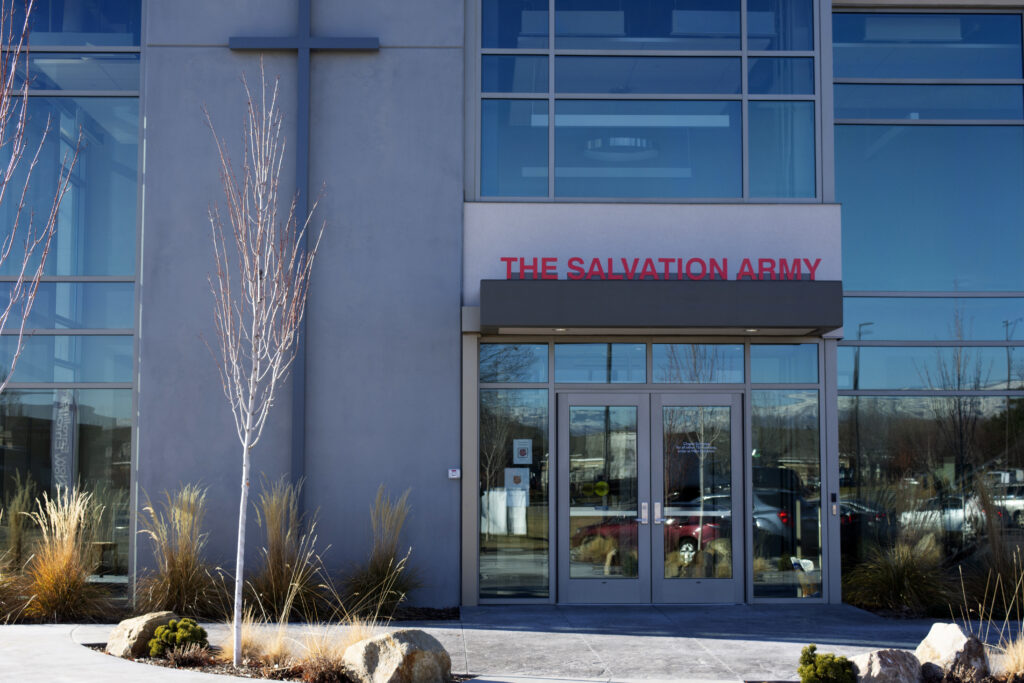
Not only will there be a childcare center on site; students will also have access to prenatal and postnatal appointments, mental health services, on-site parenting and life skill courses, tutoring and GED programs for students who have aged out of the public school system, and a food bank.
The school will also offer transportation, which can be a huge issue for young parents, and flexible scheduling, essential for many Cardinal students, who have to work to support themselves and their children. The education and services provided to each Cardinal student will be tailored to their unique circumstances.
“Our partnership with the Salvation Army means that even as our students age out of public schools, they can continue to receive services on site,” said Cardinal Academy co-founder and Director of Academics Deborah Hedden-Nicely. “This will have a direct impact on their ability to live in this community, with housing and food assistance, and the basic things that they need to live.”
Nationally, such robust partnerships between charter schools and nonprofits are unusual, but not unprecedented. In Idaho, Future Public School, another Bluum-supported charter, in Garden City, has close partnerships with a number of nonprofits, including the local Boys and Girls Club, where the school and the club share facility space.
Hannah Gayle knows all about how important a school like Cardinal Academy, or its district-run predecessor, can be in the life of a teen parent. When she was a high school freshman a decade or so ago a friend of Gayle’s became pregnant, and Gayle accompanied her to the guidance counselor’s office to discuss her options.
Gayle’s friend had determined to leave school, weary of the stares directed at her and the disapproval she sensed.
At the counselor’s urging, the girl enrolled in Booth-Marian Pritchett, the high school for pregnant and parenting teens, then being jointly run by the Salvation Army and the Boise School District (BSD). Gayle had never heard of it until that day.
Fast forward to the fall of her senior year, when Gayle found herself in a similar situation — pregnant with twins. She thought back to the day she accompanied her friend to the guidance counselor’s office. Like her friend, she felt the “social stigma” around being pregnant in high school, and decided to leave and enroll in the specialized school.
“You don’t feel supported at a traditional high school if you are pregnant. You’re likely going to be the only one,” Gayle said recently. “Why would you want to go to a place where there is no one else like you?”
Despite the apparent need, last April, BSD decided to close the school, just as it was preparing to move into the sparkling new Salvation Army facility. The district cited declining enrollment and argued that pregnant and parenting students could be absorbed by the district’s alternative Frank Church High School.
Fortunately, two veteran Booth-Marian Pritchett educators, Hedden-Nicely and Emily Bergstrom, deeply disappointed by the district’s decision and recognizing the ongoing need, decided to open a charter school with a similar but expanded mission.
Last December, the Idaho Public Charter School Commission approved a contract with Cardinal Academy. It will open this summer in the new Salvation Army facility.
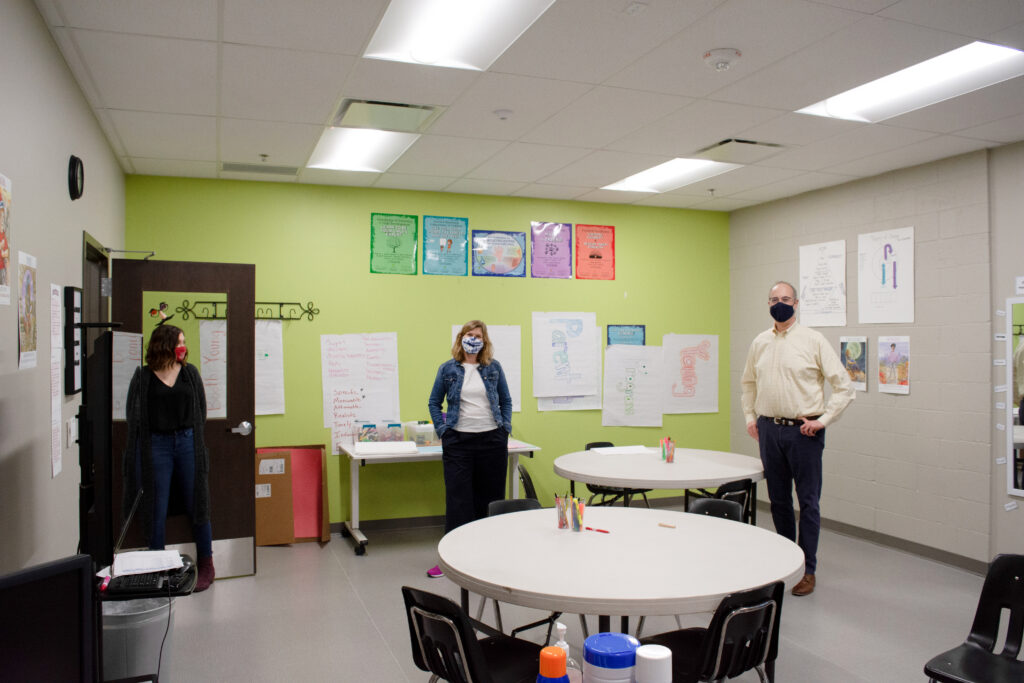
Hannah Gayle will be one of the school’s founding board members. She is now an intervention specialist at Future Public School.
“When we heard (Booth-Marian Pritchett) was closing and the students were being moved to Frank Church, we didn’t think that was a great idea, on a lot of levels,” Hedden-Nicely said. “And that is backed by research.”
Cardinal Academy’s program will be mostly homegrown, but will draw upon similar schools elsewhere, most notably the New Legacy Charter High School in Aurora, Colo., the Florence Crittenden High School in Denver, run by the school district; and the Lumen Charter High School in Spokane, Wash.
Ultimately, BSD’s decision to close Booth-Marian Pritchett may prove to be a blessing in disguise. The district had demonstrated a waning commitment to the program over the years, even as the need for it remained acute. Cardinal Academy’s ambitious program, supported by wraparound services from the Salvation Army, promises to offer a more comprehensive education and better supports to a larger number of teen parents and prospective parents — male and female alike.
The history of Booth-Marian Pritchett shows how society’s view of teen pregnancy has evolved over time. But ask any teen parent, and educators who support them, and it becomes clear that even today, a stigma remains.
“When I got there in 2002, there were some fairly influential Boise families who moved their daughters to the school and wanted it to remain extremely private,” Hedden-Nicely said. “It is still an issue.”
A century ago, when the Salvation Army opened its Booth Home for unwed mothers in Boise’s North End, becoming pregnant as a single teen cast shame on the expectant mother and her family as well. In many cases, pregnant girls were shepherded out of town by their families “to stay with an auntie,” Hedden-Nicely said, thereby keeping the pregnancy a secret. In fact, the young, expecting mothers often moved into a home like Booth.
More often than not, after a teen mother gave birth, the infant was put up for adoption, and the girl would return home and resume her life.
Over the years, as more young women arrived at the Booth home from across Idaho, as well as eastern Oregon and Washington, Salvation Army staff realized they needed to do more than provide a place for the girls to stay, and give birth. If they were going to be in residence for at least a few months, then they needed to be in school.
In 1964, the Salvation Army reached out to BSD and described the situation. The district initially sent one teacher, but its commitment grew over the years until the young women (and eventually expectant fathers as well), could take a full array of courses there.
Until about 2013, Booth-Marian Pritchett usually operated at its capacity of 50 students. Increasingly, however, the old space felt cramped, with a small cafeteria, small classrooms, and an on-site childcare center that couldn’t accommodate all the students’ babies. There was also a need for more of the wraparound services for the students the Salvation Army provides.
That’s when the Salvation Army decided to start fundraising for a new community center in West Boise that would include more spacious and up-to-date school facilities that could double enrollment, as well as a larger childcare center.
The Salvation Army succeeded in raising more than $9.5 million to get the Booth Campus facility built. “Many very dedicated people poured their heart and soul into this,” said Hillary Betz, who at the time was the Salvation Army’s development director, and now is a program officer at the J.A. and Kathryn Albertson Foundation.
“The community through its generosity demonstrated deep support of the program and what it has provided for so many years,” Betz said. “To help young mothers and fathers get educated and off on the right foot.”
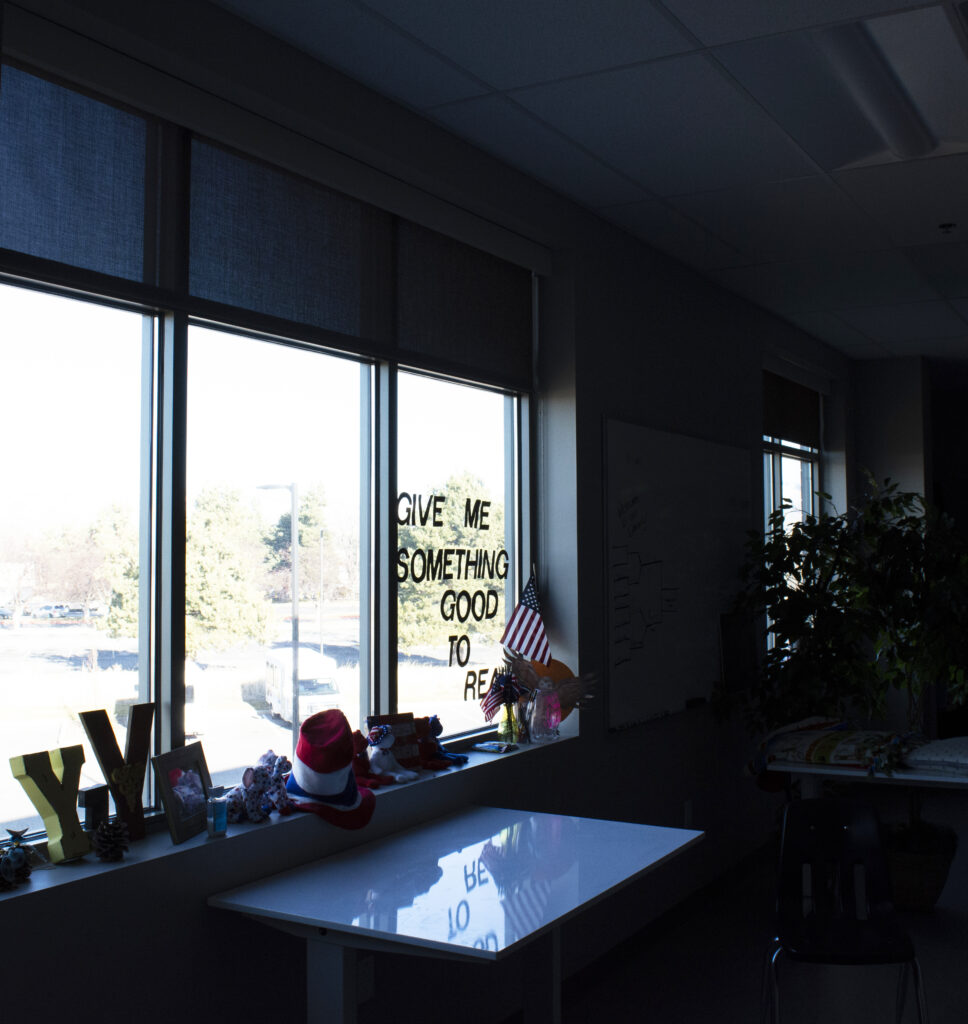
A major wrench was thrown into the planning when the Boise School District decided to close Booth-Marian Pritchett. It had begun phasing out the program, and all students had moved to online learning even before the COVID-19 pandemic struck.
It didn’t take long for Hedden-Nicely and Bergstrom to decide to try the charter route. They haven’t regretted that decision for a moment.
“Sometimes when a door closes a window opens,” said Patricia Kempthorne, who chairs Cardinal Academy’s board of directors. “What has come out of this is just wonderful. It is a terrific opportunity to help these young parents and to provide all the resources necessary to build strong families.”
As soon as BSD began scaling back the Booth-Marian Pritchett program, Hedden-Nicely began thinking about applying to open a charter school. But the amount of paperwork and logistical planning involved seemed daunting to her. But then Betz told her about Bluum’s fellowship for aspiring charter leaders, and the expertise and coaching Bluum could provide, and she decided to take the plunge.
“I feel the charter model works so much better for a program like this than being under a district, which is less flexible,” Hedden-Nicely said. She and Bergstrom have found ways to overcome challenges that seemed insurmountable in their previous situation.
One of the most important is providing transportation for all Cardinal Students to the school, an expensive but vital commitment. “Whatever it takes we will make it happen,” Bergstrom said. “Some of the more rural areas of Ada County, places like Kuna and Star, just being able to get those students and bring them here will be an effective way to expand our reach.”
—


